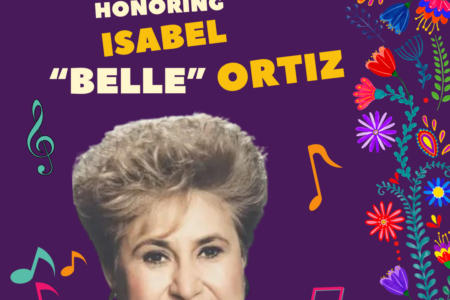
Share On Social!
More than 200,000 people—including some from Salud America!—submitted public comments on proposed changes to the “public charge” rule that could negatively impact the health of immigrant families.
For the past 60 days, the U.S. government sought public comments on the Trump Administration’s proposed changes to the public charge rule. Experts say the changes could penalize legal immigrants applying for green cards if they enroll in healthcare or use public benefits, such as food aid and housing.
We at Salud America! asked our network to submit comments to protect families.
Regulations.gov received a total of 210,889 comments!
Here are some key results:
- Only 17,073 of the comments appear in search results on Regulations.gov, as of Dec. 11, 2018.
- About 40 people used a Salud America! model comment to speak up. Salud America! call to action on public charge had 1,734 pageviews during the 60-day comment time frame.
- 85 comments pertained to Latinos and 95 related to Hispanics, which totals to 180 comments.
“While most of the comments haven’t yet been publicly posted online, it’s fair to say that most of the activity around the proposal has come from outraged immigrant-rights and economic-justice groups — as well as medical associations deeply concerned about the potential for families to forego necessary health services for fear of jeopardizing their immigration status,” Dara Lind wrote for Vox.
What Is Public Charge?
For a Public Charge test, immigration officials look at all a person’s circumstances in determining whether they are likely to become a public charge in the future, both positive and negative. This includes age, health, income, assets, resources, education/skills, family they must support, and family who will support them.
If the government determines a person is likely to become a “public charge,” it can deny a person admission to the U.S. or lawful permanent residence (or “green card” status), according to the National Immigration Law Center.
“This would force immigrant families to make an impossible choice between meeting basic needs and keeping their families together in this country,” according to the National Immigration Law Center.
Public Charge: What’s Next?
Public comments on public charge is now closed.
It is not known if and when the proposed rule changes would go into effect. If the rule does take into effect, it will greatly hurt families and the economy, some experts say.
MomsRising indicates that, if the proposed changes are finalized, the new policy would:
- Add more programs that could be considered when determining if someone is likely to become a public charge, including certain health care, food, and housing programs.
- Establish income levels that would be weighed against or in favor of applicants in the public charge test. For example, if a person earns less than $31,000 per year to support a family of four, this would be considered a negative factor in the public charge test. And a person who supports a family of four would have to earn more than $63,000 per year for their income to be considered a heavily positive factor in this test.
- Apply a similar test to (1) requests to extend a nonimmigrant visa (for example, to receive permission to stay longer in the U.S. on a visitor’s visa) and (2) requests to change to another nonimmigrant status (for example, change from a student visa to an employment visa).
- Lists other standards for immigration officials to consider when evaluating an individual case. For example, having limited English-speaking skills or physical or mental health conditions that could affect the person’s ability to work, attend school, or care for themselves would be viewed negatively in the “totality of circumstances” test.
- Could allow some people applying for a green card to post a public charge bond in order to enter the U.S. To be allowed into the U.S., a person deemed likely to become a public charge because of their income, a health condition, or certain other factors may be required to buy a bond for a minimum of $10,000. They might then lose that money (forfeit the bond) if they used certain government programs.
Given these ramifications, we want to thank all of those who spoke up for health equity for Latino and all people!
Explore More:
Embracing ImmigrantsBy The Numbers
44
million
immigrants live in the United States



